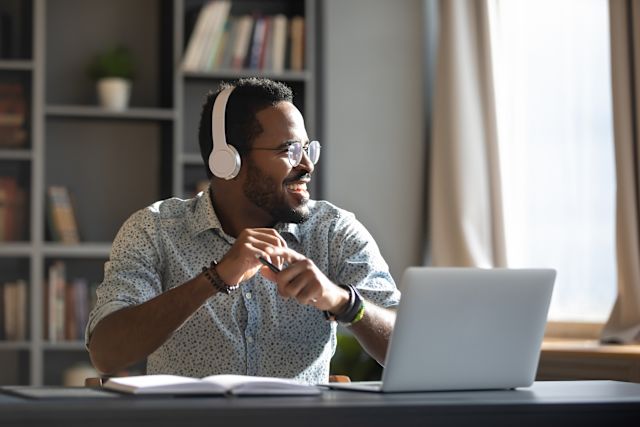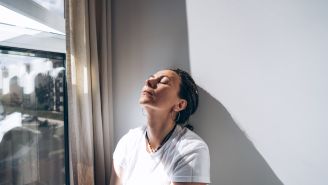Updated on October 12, 2022.
If you sometimes feel like your body is tied in knots or your mind just won't let your worries rest, you’re not alone. In 2021, almost 12 percent of U.S. adults reported regularly feeling worried, nervous, or anxious, according to the Centers for Disease Control and Prevention. And research shows that about one person out of every three may have an anxiety disorder at some point in their life.
It’s always a good idea to seek help from a healthcare provider if you feel that anxiety is interfering with your life. But there are also some things you can add to your daily routine that may help—and they may even be fun. Accumulating research shows that listening to music may be one way to reduce anxiety.
Listen to music and unwind
A analysis of results from 21 studies conducted across four continents found that listening to music may help relieve anxiety in a broad range of people, including those with insomnia, older people with high blood pressure, pregnant people, healthy teens, and college students. The study, published in 2022 in Musicae Scientiae, is the first of its kind to review research about the effect of music on anxiety related to everyday life (rather than anxiety brought on by taking a stressful test, such as those commonly given as part of research studies).
Results showed that listening to music was significantly associated with reduced anxiety. In most of the studies analyzed, people listened to music for about 30 minutes, but listening to music for less than 30 minutes was still associated with reduced anxiety, according to the results.
One thing to note: It seemed most beneficial to listen to music often; a single listening session was not associated with less anxiety. People in the studies listened mostly to instrumental music without singing, such as classical, meditative, ambient, or new age. The authors stated that listening to music helps regulate emotions, which may help decrease anxiety.
Musings about music
Research suggests that music may have broad-ranging effects on various body processes, especially those involved in the stress response.
Listening to music has been tied to improved mood, decreased stress, and better sleep. It’s been associated with decreased levels of the stress hormone cortisol, as well as increased levels of feel-good endorphins (your body’s natural pain-killers.) Music can either stimulate or dampen the autonomic nervous system, which helps to regulate heart rate, blood pressure, breathing, and digestion. Research also suggests that slower-tempo music may help rein in heart rate and lower blood pressure.
Not a music lover? That’s ok, there are plenty of other healthy ways to handle stress you can try.







